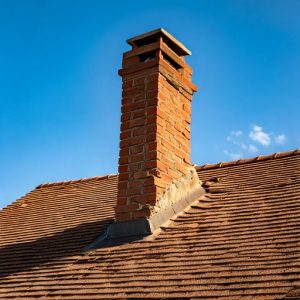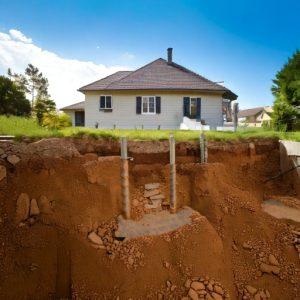Earthquakes often bring to mind images of collapsed buildings and cracked highways, but even minor tremors can pose risks to your home’s foundation. While most small earthquakes don’t cause immediate damage, repeated exposure or pre-existing vulnerabilities can leave foundations weakened over time. Understanding how minor earthquakes affect your home and what you can do to protect it is crucial, even in regions where major quakes are rare.
How Minor Earthquakes Affect Foundations
1. Vibrational Stress
During an earthquake, seismic waves cause the ground to shake. Even small quakes generate vibrations that can transfer stress to your foundation. Over time, this repeated stress can weaken the materials, particularly if the foundation is already compromised by cracks or settling.
2. Soil Shifting
Soil plays a critical role in foundation stability. Earthquakes, even minor ones, can shift or loosen the soil beneath your home, potentially leading to uneven settling or voids. This is particularly concerning in areas with expansive clay soils, like Lawrence, KS, where soil movement is already a common issue.
3. Amplification of Pre-Existing Problems
Small earthquakes are unlikely to cause damage to a well-built and stable foundation, but if your foundation already has cracks, poor drainage, or improper reinforcement, seismic activity can exacerbate these issues.
Signs of Earthquake-Related Foundation Damage
After a minor earthquake, it’s essential to inspect your home for signs of foundation damage. Look for:
- New or widening cracks in walls, ceilings, or floors.
- Doors and windows that suddenly stick or no longer close properly.
- Tilting or uneven floors.
- Gaps between the walls and the floor or ceiling.
While some of these signs might be caused by normal settling or other factors, they could also indicate earthquake-related stress.
Protecting Your Foundation from Minor Earthquakes
1. Reinforce Your Foundation
If you live in an area prone to seismic activity, consider reinforcing your foundation. Retrofitting techniques such as adding steel brackets, bolting the foundation to the framing, or installing seismic-grade piers can help your home better withstand tremors.
2. Improve Soil Stability
Soil stabilization methods, such as injecting grout to fill voids or compacting loose soil, can reduce the risk of soil shifting during an earthquake. In areas like Lawrence, KS, where clay soils are prevalent, these measures are especially valuable.
3. Regular Inspections
Scheduling regular foundation inspections can help you identify and address vulnerabilities before a minor earthquake causes significant damage. Professionals can spot issues such as small cracks or drainage problems that could worsen with seismic activity.
4. Address Drainage Issues
Poor drainage can weaken the soil beneath your foundation, making it more susceptible to movement during an earthquake. Ensure that water is directed away from your home through proper grading, gutters, and downspouts.
5. Emergency Preparedness
While preparing your foundation is critical, don’t forget to secure the rest of your home. Anchor heavy furniture, secure appliances, and store fragile items in safe locations to minimize damage during a quake.
Do Minor Earthquakes Occur in Kansas?
Kansas isn’t typically associated with earthquakes, but minor seismic activity has been on the rise in recent years. This increase is largely attributed to natural tectonic shifts and human-induced factors like wastewater injection from oil and gas production. Homeowners in areas like Lawrence, KS, should stay informed about regional seismic activity and take precautions to protect their homes, even if the risk of a major earthquake remains low.
When to Call a Professional
If your home experiences a minor earthquake, it’s wise to schedule a foundation inspection, especially if you notice any of the warning signs listed earlier. Foundation repair experts can assess the extent of the damage and recommend solutions to stabilize your home and prevent further issues.
Conclusion
Even minor earthquakes can have a significant impact on your home’s foundation over time, particularly if underlying vulnerabilities exist. By understanding how small tremors affect your foundation, taking proactive measures to reinforce your home, and addressing drainage or soil issues, you can minimize the risks and protect your property. In regions like Lawrence, KS, where the potential for minor earthquakes exists, preparation and maintenance are key to keeping your foundation—and your home—on solid ground.






